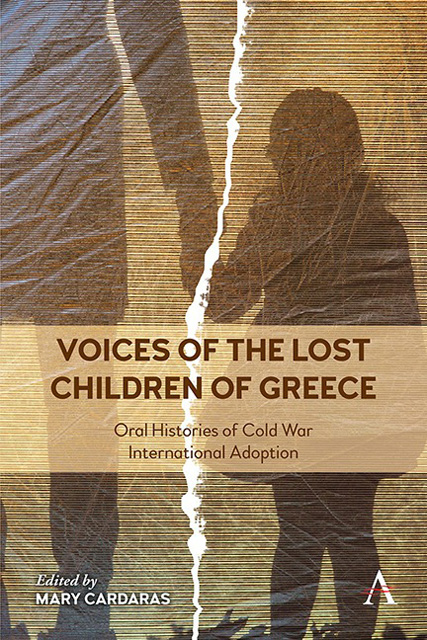Book contents
- Frontmatter
- Dedication
- Dedication
- Contents
- Foreword
- Introduction
- 1 Adoption’s Unfinished Business
- 2 Full Circles and Beyond
- 3 What’s in a Name?
- 4 The Second Beginning
- 5 Questions of the Heart
- 6 The Secret
- 7 A Coffin Full of Secrets
- 8 The Final Goodbye
- 9 Unsettled Soul
- 10 That’s All I Know So Far
- 11 Given, Taken, Never Received
- 12 An Adventure in Identity
- 13 Broken Lines: A Story to Tell
- 14 An Unexpected Journey
- 15 Time Run Out
- 16 Today and Afterward
- Acknowledgments
- About the Editor
- Resource List
Introduction
Published online by Cambridge University Press: 17 October 2023
- Frontmatter
- Dedication
- Dedication
- Contents
- Foreword
- Introduction
- 1 Adoption’s Unfinished Business
- 2 Full Circles and Beyond
- 3 What’s in a Name?
- 4 The Second Beginning
- 5 Questions of the Heart
- 6 The Secret
- 7 A Coffin Full of Secrets
- 8 The Final Goodbye
- 9 Unsettled Soul
- 10 That’s All I Know So Far
- 11 Given, Taken, Never Received
- 12 An Adventure in Identity
- 13 Broken Lines: A Story to Tell
- 14 An Unexpected Journey
- 15 Time Run Out
- 16 Today and Afterward
- Acknowledgments
- About the Editor
- Resource List
Summary
In the 1990s, when I was a journalist working in Philadelphia, I executive produced a documentary about an orphanage in Guatemala that, at the time, was one of the “go to” places where childless couples could find infants and young children to adopt. I remember helping the reporter and producer craft the storyline, deciding to begin by telling the story of Moses (yes, that Moses), who was maybe one of the first adoptees in recorded history, and what that story has meant in Judaism and in the greater historical narrative about adoption.
I worked on the story dispassionately. We had long discussions about the plucking of Guatemalan children from their rich culture and language to see them dispatched to points all over the globe. We talked about birth mothers and fathers. We talked about what could become of these children and what they might feel about their adoptions as they grew up. And yet, I failed to internalize the stories and destinies of those precious children. I failed to acknowledge, in my own heart, that I was one of them, even as I had begun my own search for biological kin, via the sluggish U.S. Postal Service, before the Internet was widely available.
My own ten-year search (to this point in the 1990s) was not yielding fruit; my biological mother, whose name was listed on my Greek birth certificate, had decided, after many letters through intermediaries back and forth, that she would not pursue and did not want a meeting with me, as I had requested. No explanation was given, just speculation about her feelings and frame of mind, but again, I failed to internalize the news. Rather than to feel about it, I abruptly abandoned my search. Obviously, I was too hurt to deal with the rejection, but failed to express it. I summarily buried my deepest feelings about the circumstances of my birth, my adoption, and what it felt like to have been born into one family and be given to and raised by another.
It was not until after both my adoptive parents had died when I allowed myself to seriously think about my early childhood again.
- Type
- Chapter
- Information
- Voices of the Lost Children of GreeceOral Histories of Post-War International Adoption, pp. 1 - 4Publisher: Anthem PressPrint publication year: 2023

